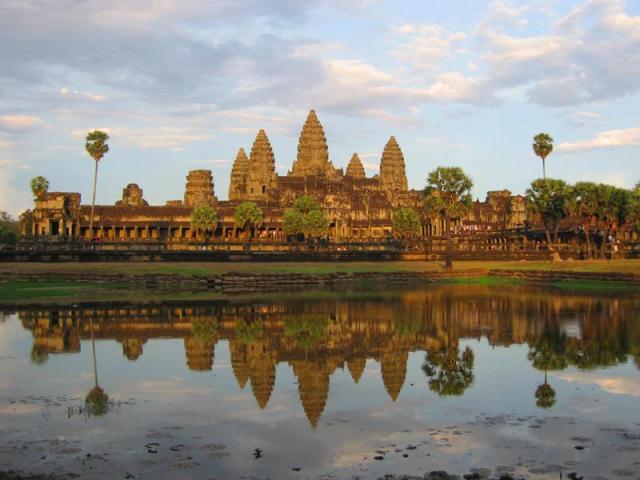Why are we all going to die
It is believed that to live forever, well, or at least a little longer – the main interest of mankind throughout his adult stories. This opinion – complete nonsense, of course.
Interest in the problems of longevity briefly captured the minds of people solely at the relatively well, sluggish, do not promise fast disasters. For example, in the early twentieth century (the proverbial “Madam, I transplanted ovaries you monkey!” Transfiguration professor – a distant echo of those scientific daring). Another peak – the end of the ’60s, and the last explosion of interest in life extension occurs at the end of 90’s, when the half-mad freak Aubrey de Grey said: “The first person who will live to a thousand years, has already been born, and now he must be , fifty years. “
On the contrary, there are such historical eras, when talk about longevity – hence gain reputation cheerful idiot. I’m not sure if we do not live right now in one of them, because it is not always noticeable inside stories. For example, Ivan Mechnikov once mistaken decided it was time to extend the life of a hundred years by a special mechnikovskoy sour, but then Leo Tolstoy, even then “mirror of the Russian revolution,” mocked his evil and maliciously, in anticipation of the coming changes.
All fulfilled favor and talk about a long life, which version of the “Snob” wishes all readers, even in spite of scientific predictions. A couple of recent research findings give us if not a reason for optimism, then at least a topic for conversation.
Until recently, it was possible to hear the following argument for the inevitability of lengthening life, if not immortality. Here, look. Now every five years, the average life expectancy has increased in the world for two years (forty years ago and increased by one year for five years). That is just podnapryaglis scientists, and life began to grow faster.
This means that if scientists try a little more, it may happen that every five years the average life expectancy will increase by five years.
That is, now I can statistically expect to live another thirty years, and five years later – again, thirty, and so on to infinity. And that means what? What people are “on average” become immortal.
Probably do not even need to explain where the rat hiding here. It is that actually the human lifespan virtually unchanged last hundred thousand years. For example, the biblical “days of our years 70 years and under 80 years of strength” is quite relevant today (well, maybe now in developed countries a bit more, but it’s not quite the runaway growth rate, which is briefly seen in the second half of the twentieth century).
In a curious review in Scientific American presented interesting data on life in primitive societies (both ancient mummies of the study and preserved to this day). Yes, life expectancy at birth was barely thirty years old, but if a person lived to maturity, he was still left forty years. In this octogenarian were not uncommon. Well, where is your progress?
This observation actually thirty years, but the article goes a little further, raising the question: if a long life of humans as compared with, say, a chimpanzee – the result of a single mutation, what is this mutation that for a gene? It turns out that there are suspected and specific – e.g., the gene APOE, affecting, in particular, the intensity of the inflammatory response to infection. The authors argue in favor of the gene that was subject to strong selection pressure, and it is connected to the output of human ancestors out of the forests in the savannah and the transition to animal foods.
And here we must raise the question, if we are a little bit to think, and not just sit in front of the monitor. Why, in fact, the gene in human life became subject to positive selection in connection with meat-eating? Common sense suggests that the gene-bearing individuals, even a couple of extra years of active life, allow leave more offspring, and therefore must be supported by selecting ALWAYS. Is not it?
And why, then, after a billion years of evolution of all life still grows old and dies? Why life needed a death? If some mad scientist is hoping to get people to immortality, not knowing the answer to this question, he really is insane. And no one knows the answer, unfortunately.
Nick Lane in his excellent book Life Ascending a curious fact. In all animals, which are now working genetics, the worm C. elegans to mice and flies, pretty easy to get mutations significantly lengthen life. Mutations shortening life (apart from some severe genetic diseases is greatly reduced fitness), are virtually unknown. The impression is that the nature of all the capabilities of the time refused to long life for his creatures, the default setting a timer to the minimum. As this mechanism is supported by selection, is unclear. But, apparently, supported, or even then God punish us for something.
Very similar picture, by the way, is observed with sex. From the perspective of sex selection – it is a property of organisms when procreation need not one, but two. That is, the efficiency of gene transfer descendants exactly twice lower than in the Immaculate Conception. And yet the Immaculate Conception – an unprecedented miracle. And worse: almost all kinds of organisms that are capable of this (such as dandelions), evolutionarily very young. This means that the species without sex seems not live long. Dying for reasons that are not yet fully understood.
Maybe the death of the same story. And this means that humanity – very youthful appearance, a million years ago, received as fate treasured mutation longevity – also doomed. For no apparent reason while. And deal with it, perhaps even more important than prolong our lives for another couple of hundred years, not to mention eternity.
Thus, scientists have not even decided whether we live too little or too much for our own good – that here expect of them.
On one of the attempts to understand this question recently told Nature magazine . But instead to clarify the question, “Why death?” Article Danish biologists only still more confused. These corrosive guys tried to figure out how different species mortality varies with age and it depends on the length of the reproductive period.
Answer: does not depend. People in developed countries, such as the probability of dying very slowly begins to grow soon after birth, and then, decades later, after you have kids born last, shoots up dramatically. This rise, in fact, what we call the “death of old age”, and gerontologists – «J-shaped curve.”
But most species of living creatures nothing like this. For example, a hermit crab probability of death does not depend on age. And tits and some lizards – slightly increases with age, but without any hint of this sharp rise at the end of which, in fact, is such excruciating existential problem for a reasonable person.
Worse, turtles and oaks probability of death with age and decreases at all. In other words, the longer you live, the longer you can expect to live more. If you are afraid to remain a widow, girls marry a Mr. Long, ninety-member Federation Council from Moscow: there is a high probability that he and Putin even survive, let alone you and me. That is not in vsamdelishnye, and if he was an oak or a turtle.
Of course, this does not negate all niskolechko pessimistic arguments of Nick Lane’s book: perhaps nature does not bother with a special “mechanism of death” in cases where members of the species, and so effectively dying of accidental causes. The question of why natural selection can not support a permanent, from generation to generation, increasing the longevity of all your creations, and remained unanswered.
Another myth about old reeled in a recent study. American neuroscientists decided to check whether the human brain with age so badly and irreversibly spoiled that prolong this farce would be simply inhumane. And it turned out that he was not spoiled, and even improved.
They investigated the functional relationships between different parts of the brain. And they found that they really change with age, but the change is not just “for the worst”, but a very sophisticated and targeted, with some notable complication networks. In order not to bore the reader with clever names of different parts of the brain, we can only say that the result of such changes could be the acceleration of information processing and increase in “life satisfaction” (psychologists have long noted that the elderly, paradoxically, despite the proximity of death and the probability of disease, rarely steamed for nothing, and now it is clear that this process is programmed in the development of brain structures).
Thus, with age, we become better, and then die for something. And we have learned to this question: “And that’s exactly what for do you need?” But scientists can not yet give a negative answer, which we get from them so much forward that sometimes he even imagining us nowhere.
Because, it seems, still need. However, we will follow the further development of the plot – are still alive, of course.



